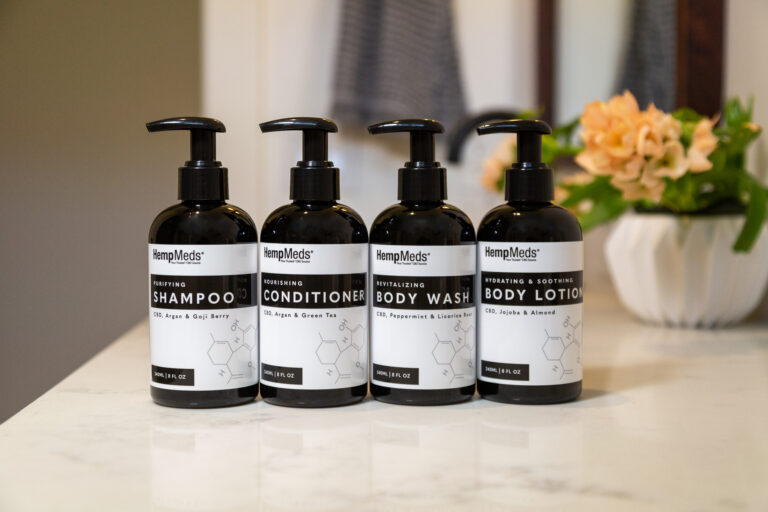Can using marijuana help lower my cholesterol?
Millions of Americans live with high cholesterol, which can increase the risk of developing heart disease, developing peripheral artery disease, or having a stroke — all of which are potentially life-threatening. Research is being conducted to determine whether patients with high cholesterol could see health benefits from using marijuana.
So far, scientists haven’t reached a conclusive verdict about whether cannabis can lower cholesterol, but while more research is needed, existing studies have raised some interesting points about marijuana’s potential role in the fight against high cholesterol and cardiovascular disease.
Marijuana Can Lower, Raise Good Cholesterol (HDL)
Cholesterol is an organic compound that naturally exists in all of your body’s cells. Cholesterol is critical to various bodily functions, such as synthesizing vitamin D, making hormones, and producing substances your body needs to digest food properly. But while some cholesterol is essential to life, too much can wreak havoc on your health. According to the CDC, about 73.5 million American adults — roughly a third of the population — have high cholesterol, which can double the risk of developing cardiovascular disease.
A 2013 study published in Diabetes Care examined the relationship between cannabis use, cholesterol levels, glucose (blood sugar), and insulin (a hormone that helps moderate glucose levels). It makes sense for researchers to study these variables together, because high cholesterol is associated with an increased risk of diabetes, which occurs when the body produces no insulin or insufficient insulin.
However, before digging into the study, it’s important to know that cholesterol can be described as “good” or “bad.” “Bad cholesterol” refers to LDL (low-density lipoprotein), while “good cholesterol” indicates HDL (high-density lipoprotein), which helps remove LDL deposits.
LDL (bad) cholesterol can accumulate inside your blood vessels, causing your arteries to become harder and narrower. Eventually, an artery can become so clogged that it gets completely blocked. When this happens, blood can no longer reach the tissue or organs on the other side of the obstruction, leading to a stroke or heart attack (myocardial infarction).
This can occur whether you have diabetes or not, but diabetes patients are at an elevated risk for a number of reasons, including that diabetes has a tendency to decrease HDL levels while simultaneously raising LDL levels. The more LDL builds up in your arteries, the more likely you are to develop a blockage.
In the Diabetes Care study, researchers examined 30 “chronic cannabis smokers” whose median self-reported use was six joints per day over a period of nine and a half years. (Participants’ use ranged anywhere from three to 30 joints per day, over a period of two to 38 years.) Slightly more than half of the participants — 18 out of 30 — were male.
According to the study, “Cannabis smokers had lower plasma HDL cholesterol,” but unchanged levels of LDL. That means heavy daily cannabis users had a decrease in good cholesterol, but no increase or decrease in bad cholesterol. However, a study published the year before in BMJ Open found a different result: that “marijuana users had a higher prevalence of serum HDL cholesterol [and] total cholesterol.” In other words, an elevated level of good cholesterol.
The difference in findings is due partially to the fact that each study evaluated different bodily substances. The Diabetes study, which said that cannabis lowered good cholesterol while having no effect on bad cholesterol, examined participants’ blood plasma: yellow fluid that doesn’t contain any cells. The BMJ study, which came to the opposite conclusion, looked at participants’ blood serum: the part of your blood that remains after clotting occurs. Additionally, the cannabis use described in the Diabetes study was far heavier than the use described the BMJ study, which classified “heavy” use as more than five uses per month (as opposed to six joints per day).
Another study, published in 2007 in Dialogues in Clinical Neuroscience, also examined marijuana’s effects on LDL and HDL. The Neuroscience study, while critical of cannabis as a potential (though rare) trigger for schizophrenia or psychosis, also noted an increase in good cholesterol in patients who used a drug called Rimonabant.
Rimonabant actually blocks some of the effects of THC, but, like cannabis, acts on the brain’s CB1 receptors. Intended as an anti-obesity drug, Rimonabant was never approved for use in the United States because subjects reported feelings of depression and suicidal ideation. However, the fact that Rimonabant is a CB1 antagonist, like Cannabidiol (CBD), further suggests that medical marijuana could potentially have applications in helping to improve your cholesterol.
Using Cannabis to Manage Your Weight
Again, more research is needed with regard to the relationship between marijuana and cholesterol. While some studies have suggested that cannabis can raise your good cholesterol levels, others, like the one published in Diabetes Care, indicate the opposite effect.
On the other hand, studies have shown that marijuana can help treat diabetes and reduce abdominal fat, so we know that cannabis can aid weight loss and enhance cardiovascular health — both keys to bringing bad cholesterol down.
Of course, at the end of the day, the best and simplest way to control your weight and keep your heart healthy will always be proper diet and exercise. Fortunately, it’s quite possible to diet while using marijuana, as long as you follow some basic tips to control the munchies.
- Read more about Can using marijuana help lower my cholesterol?
- Log in to post comments



